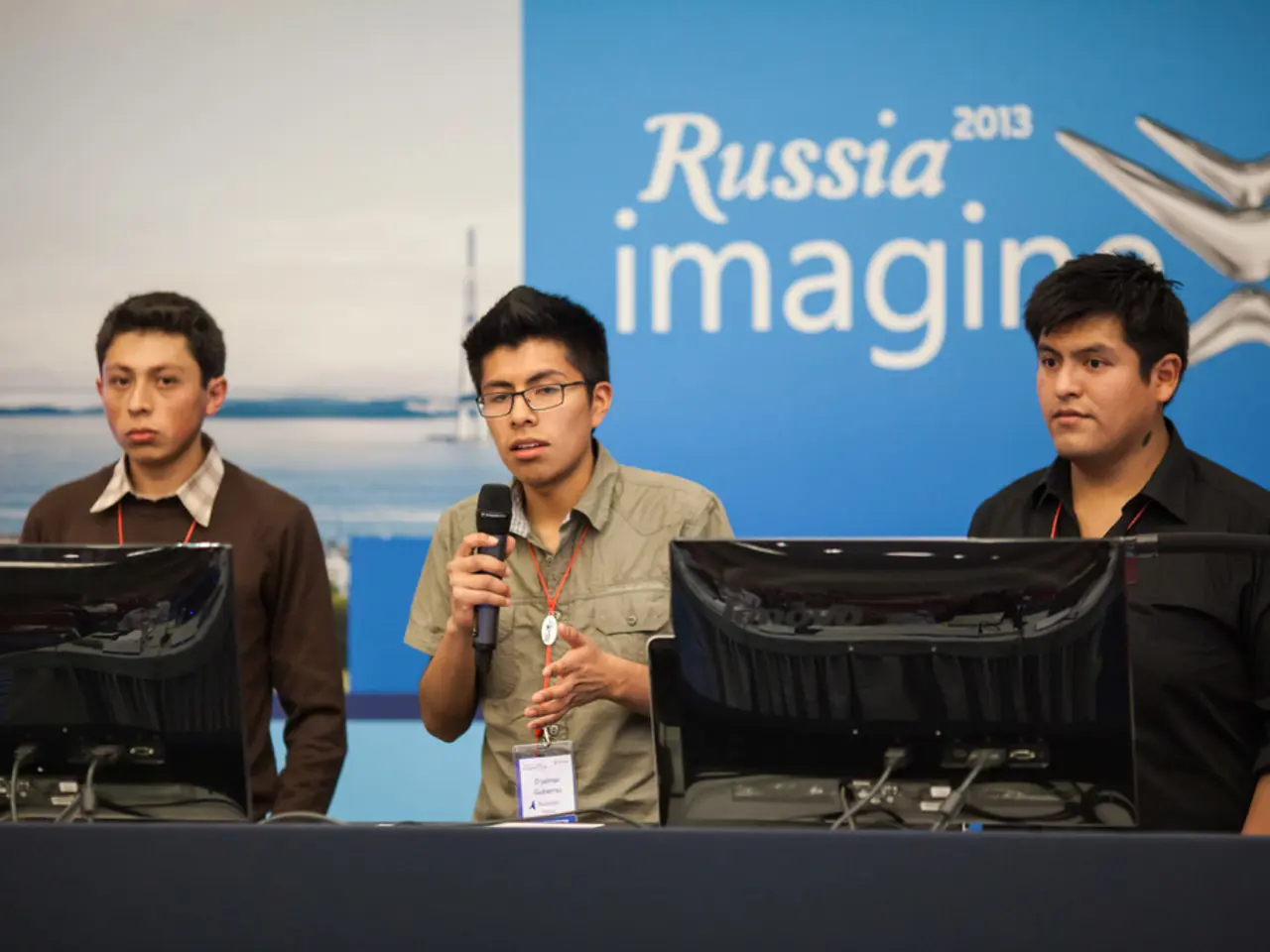International authorities, including those from Ukraine and Europe, have pressured President Trump to exclude them from a potential peace agreement concluded in Alaska, warning against unilateral decision-making.
In the ongoing conflict between Ukraine and Russia, European leaders are urging caution and firmness in any potential peace talks. The main concern is that Ukraine should not cede any territory to Russia as part of a peace deal, viewing such concessions as a "trap" set by Russian President Vladimir Putin to reward aggression without reciprocity.
The US President, Donald Trump, had given Putin a deadline of August 8 to agree to a ceasefire or face new sanctions on Russia's "shadow fleet." However, the deadline passed without consequence, and Trump announced a summit with Putin this Friday.
The European leaders, including German Chancellor Friedrich Merz, have been actively involved in the discussions. Merz convened a virtual summit with Trump, Ukrainian President Volodymyr Zelensky, and several European leaders. During the meeting, they emphasized the importance of security guarantees for Ukraine, potentially involving a "Coalition of the Willing" including European countries like Germany, France, and the UK, with support from the United States in the form of intelligence sharing, logistics, and a strategic backstop, but without US boots on the ground.
They also stressed the need to sustain and increase sanctions on Russia as a lever against Putin and maintaining a unified Western front. Pressing for public clarity and commitment on how such security guarantees would be implemented, including the deployment of European troops on Ukrainian soil to deter future Russian aggression, was another key point.
The leaders warn that the risk of encouraging further Russian aggression is high if Ukraine is forced to give up territory without reciprocal concessions, thereby undermining Ukraine’s sovereignty and emboldening Russia. Weakened Western unity and leverage would reduce the effectiveness of sanctions and diplomatic pressure on Russia, potentially leading to a fragile or temporary peace deal that lacks enforceable security guarantees, leaving Ukraine vulnerable to renewed attacks.
The participants reiterated four key points to Trump: a ceasefire is necessary for peace talks, Russia should face fresh sanctions if it does not agree to a ceasefire, international borders must not be changed by force, and Ukraine must have robust and credible security guarantees.
In summary, the core European demand is a peace deal that enforces durable security guarantees for Ukraine without territorial concessions to Russia, reinforcing continued support for Ukraine and maintaining pressure on Russia through sanctions and diplomatic unity. The momentum for supporting Ukraine must be maintained and clearly defined, with Europe taking primary responsibility for securing peace alongside the US.
World leaders, led by German Chancellor Friedrich Merz, are discussing policy-and-legislation and politics regarding war-and-conflicts, particularly the ongoing Ukraine-Russia conflict. The general news highlights their collective concern about territorial concessions to Russia, viewing it as a potential trap, and their intention to sustain and increase sanctions on Russia to maintain a unified Western front.







